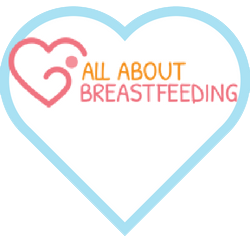5 things you may not know about breastfeeding
Colostrum is milk. You are already producing colostrum halfway through your pregnancy. Your milk is in at birth.
Not everyone needs to take galactagogues
You can and should continue breastfeeding during colds and flu and other illnesses
Breast milk is not always white. It can be blue, green, yellow (ahem- gold!), pink, or orange depending what you eat or drink. Don’t worry, it’s OK for baby.
Your breast milk is constantly changing to meet the needs of your growing baby. From month-to-month, throughout the week, day-to-day, and even throughout a single feeding.
Number 1: Colostrum is milk –
In next weeks show I am going to share in greater detail about this whole notion of “your milk is not in yet.”, however, for right now, I would like for you to know that colostrum is milk. There are plenty of times when moms can even hand express colostrum or after a feeding they can see a bit dribbling out of their babies mouth, and yet, if there baby appears to be particularly fussy or less output than they are looking for or is jaundiced or just does not sleep as well as the staff things the baby should or is giving hunger cues more frequent than they deem is normal, mothers are often told that their milk is not in yet. The colostrum is there, everyone can see it, but they are told the milk is not in yet. Colostrum is milk.
Why is it so important that mothers not be told they have no milk, when they actually are producing milk for their babies, which is called colostrum? Because if they think they do not have milk, and they actually really do, their confidence level goes way down. When the person in the hospital who is caring for you and your baby, tells you that you have no milk and your baby has lost weight or is crying or is fussy or has not had a pee diaper in 8 hours, you are understandably very upset and quite fearful that your baby will not get enough food.
So, what is the natural response to parents who do not know any different. What is the natural response to parents who only want the best for their babies. They are responsible parents who do not want their baby to go hungry. So, what do they do? They listen to Staff who advise feeding formula, until their milk comes in. As parents, unless you know different, you are going to do what all good parents who love their babies would do – feed your baby formula.
The problem? While there is a very small percentage of mothers who will not produce milk for their babies, the numbers are very, very, very small.
The problem? When uneducated people tell parents lies, it sets them up for feeding their baby formula, when in actuality, they do have milk – colostrum – and this colostrum is exactly what their baby needs and now they are being denied it. This is a big problem that happens on a regular daily basis in hospitals all over the world.
Why do I spend time educating you about this? It is because in many hospitals or with many people who really have not studied lactation, human milk, how the breast makes milk and colostrum specifically, it is often equated as the same thing as the milk that is in a bottle of formula or re-constituted infant milk powder and this is very, very, very far from the truth.
Before we leave this topic, I will tell you that I go into a lot more detail about this amazing fluid called colostrum in my online breastfeeding class, however, for the purposes of this show, here is the basics of what I would like for you to know about colostrum –
Colostrum is a milky fluid that comes from the breasts, not only of humans, but from cows and other mammals, in the first few days after giving birth. Babies nutritional requirements are constantly changing and the nutritional requirements they need the first few days after birth are different than the next week or the week after. Colostrum is a very specialized fluid that just you alone make. It contains proteins, carbohydrates, fats, vitamins, minerals and proteins ( antibodies) that fight off diseases causing agents such as bacteria and viruses. This amazing milk, called colostrum has been studies and we know that the nutrients are different for each species. In other words, the nutrients in the colostrum that cows make are different than the nutrients in colostrum that pigs make and these are all different for goats and cats and horses and giraffes. Your baby needs the nutrients that are required for human babies so t hey can grow and develop like a human being, not like a cow or dog or horse or a pig or goat.
Number 2: Not everyone needs to take galactagogues:
The definition of galactagogues is a food or drug that promotes or increases the flow of a mother’s milk. These include prescription medication, herbs and foods.
There is some evidence to suggest that mothers who are unable to meet their infants’ breastfeeding needs may benefit from galactogogues.
The reason I say may is because not every mother has the same circumstances as to why she is not able to meet her babies needs. The difference in the circumstance, could mean that the galactagogue that may work best for them is different than what might work best for the next mother.
The average mother does not need galactagogues to increase or maintain a supply that meets her babies needs.
The problem is: Often times, this is a perceived problem and with professional lactation help a mother can find out that, she in fact, does have enough milk for her baby but circumstances that are happening with breastfeeding lead her to believe that she does not have enough. Other times, she is not producing enough for her baby, but with good lactation support, and some adjustments to how breastfeeding is happening, wallah, she is now producting plenty of milk for her baby.
Why do I want you to know that not everyone needs to take galactagogues to make enough milk for their baby?
Because, in my private practice, I see more and more mothers coming into their breastfeeding journey, already taking herbs and eating foods they would not normally eat or like and some even have prescription medication on hand, that they either got from a friend or perhaps got a script from their OB on Day 2 or 3, all because they are worried about supply.
The problem with this: The confidence level in your ability to make milk is quite low. You start off your BF journey automatically assuming you will not make enough milk. All your friends are telling you to have mothers milk tea and liquid herbs and capsules on hand and to start taking them right away to avoid a low supply.
What do I want to see happen? My greatest wish is that, unless you have a known medical condition that you will have a problem producing enough milk for your baby, can we please just have you begin breastfeeding under the assumption that you will be able to produce enough milk for your baby.
Number 3: As we head into cold and flu season, please know that you can and should continue breastfeeding during colds and flu and other illnesses.
Outside of a few rare medical concerns, there is rarely a circumstance that you could not safely breastfeed your baby. In fact, being sick is even more reason to keep breastfeeding. I am telling you, the truth is, it is a greater concern if you stopped breastfeeding when you are sick.
Why is this?
Well, it is likely that your baby has already been exposed to the illness before you even realized your were sick or had symptoms. There is a long standing myth that continues to be perpetuated through generations and it is one you can often find me ranting about. This myth is that you can pass on your illness to your breastfed baby. This is a big fat lie with a majority of the common illnesses that you will succumb to. In fact, when you get sick, with a virus or other common illnesses, your baby really and truly needs to be drinking your milk now.
Why is this? Well, Now that you are sick, your body is going to work to help you heal. When you get sick, the way your body helps to fight off the illness is by producing antibodies that fight off infection. These protective antibodies are in your milk & mother nature designed this so perfectly. Keep breastfeeding your baby who may have already been exposed to your illness and now you will be giving your baby exactly what they need to fight off the illness. To take away your breastmilk may very well mean that you are taking away exactly what your baby needs to avoid this illness or heal from this illness. By taking away your breastmilk, you are actually increasing the likelihood of your baby getting sick.
So, what should you do when you are a breastfeeding mother and come down with a common illness. You remember – You cannot pass the cold or flu onto your baby through your milk. But you can pass on protective antibodies through your milk, so keep on breastfeeding.
Number 4: Breast milk is not always what one might expect – a milky white is what most parents tell me they expect breastmilk to look like. It can and it does. It also It can be blue, green, yellow pink, or orange. It can change color depending on what stage of lactation you are in and depending on what you eat or drink. It is all good for your baby.
In the beginning, the colostrum is different in color and composition and amount. As you go through states, you will notice the color of your milk changing. The colostrum can be a clear, thin, watery looking fluid or it can also be yellowish/orangish in color and a thick, almost sticky fluid. This is what I usually note.
As you breastfeed and the production of milk increases, your body begins to produce transitional milk and you may notice that the yellowish or clearish fluid changes to a whitish coloring.
The next stage is when your production continues to increase and you reach the mature milk stage and it can change in color as well as nutrients also.
Other common reasons to see changes in the color of your milk. Foremilk is typically what is seen at the beginning of a feeding session leading to a thinner, lower in fat nutrients and a lighter look which sometimes looks more clear than white and more blue than clear.
Then we have your hindmilk which tends to be higher in fat, thicker in consistency which lends it to be a darker white or a yellowish color.
When you are breastfeeding your baby, it is unlikely you will see the differences in the color of your milk. However, when you pump, you may notice the difference in the color of foremilk and hindmilk. Here is when you might see some bluish or brownish tints to it also.
The reasons for these changes in color are numerous. Certain foods like herbs, supplements, and medications can change the color of your milk. If you use protein powder for shakes, these have many ingredients in it and some of them are concentrated, which can cause the milk to change color.
It is also interesting when you find your milk have red or orange tinged milk. This can happen after eating foods like beets or other foods or drinks that have orange or pink dyes in them. Sometimes your milk is not red because of any beets that you have eating, but is red because of a very unfortunate common occurrence – your nipple tissue cracks and then bleeds. This will cause your milk to look red. This could also come from some blood inside your breasts that leaks into your milk ducts.
A change in anything but milk straight from the tap can be responsible for color changes. Things like storing and freezing and defrosting. This process can make you see different colors in your milk and it may not always be the same differences. Sometimes it is lighter, whiter, thicker or more watery.
Unless your baby has some milk dribbling after a feeding or they spit up, exclusively breastfeeding moms will rarely be able to see any changes in the color of your milk. When you are pumping, you are likely to see these differences.
Do not be afraid of the color changes as most likely there is absolutely nothing wrong and nothing to be concerned about. However, the first time or two it happens, you might need some reassurance or your gut might tell you something is wrong.
If you have any concerns about the color of your milk or it has changed your babies stools drastically, please contact your IBCLC who can listen to your concerns and suggest an evaluating if necessary.
Number 5: Your breast milk is constantly changing to meet the needs of your growing baby. From month-to-month, throughout the week, day-to-day, and even throughout a single feeding.
There is a common myth that continues to be perpetuated and that is – As your baby grows and gains weight, you will need to continue to keep increasing your milk volume. After all, if the average mother produces about 30-35 oz for her 2 month old and produces this same volume when her baby is 6 months old and 10 months old and a year. When your baby is bigger and weighs more, then he needs to keep adding more and more volume of milk everyday, right? Nope!
Whenever I get asked this question by my clients, I get so excited, to answer this question. I often get looks with the initial answer, but I go into a bit more detail and by that time, they are beginning to understand. But it often almost is as if they need proof. There are some doubters and I love it when they send me an email telling me, yup, I continue to produce about the same amount and my baby continues to drink about the same amount and he continues gaining, growing and reaching all of his developmental milestones, all with the same amount of milk.
How can this possibly happen? I find that so often, people are equating human milk to infant formulas. Your milk has literally hundreds of nutrients that are constantly changing to meet the needs of your baby depending on what they need at the time. So, the amount of protein and iron and fats and vitamins and minerals does not stay the same from feeding to feeding, day to day and month to month. It is constantly changing and as your baby’s needs change, such as more nutrients per ounce, your milk changes. There are no changes in formula. Infant formula that is liquid or powdered, has the same ingredients, usually about 40-45 and stays that way. Unless you purchase a different brand or one with lower iron or hypoallergenic formula, the nutrients are basically the same and in the same amount. Formula fed babies use the nutrients in formula less efficiently, which is a common reason why they need more to meet their nutritional needs.
I love busting this myth and now that you know that your breastmilk, is a constantly changing fluid that will always meet the needs of your baby, you can explain why to others in your life who are worried that your supply will not increase enough to meet your babies needs.
A quick recap of what we learned today:
Colostrum is milk. If you have colostrum at birth – you have milk!
Unless you have a specific health issue that will cause you to be at risk for low supply, do not start off breastfeeding taking supplements, assuming you need them. Just ensure that you get off to a good breastfeeding start and more than likely the milk will gradually increase to meet your babies needs just as it was intended to do.
You can and should continue breastfeeding during colds and flu and other illnesses
Breast milk comes in many different colors and consistency..
You do not need to increase your milk volume to 7 and ounces per feeding in order for your baby to continue gaining well. The nutrients in your milk will change to meet your babies needs even when they are drinking the same volume at 6 months as they did at 2 and 4 months.
Your Online Breastfeeding Class
Learn how to breastfeed – Be comfortable. Be confident.
The learning continues well beyond the average breastfeeding basics class that is 60-90 minutes. In this class, we have over 15 hours of audio lessons, combined with many hours of videos to help support what you are learning. We cover breastfeeding and medication safety, what to do if your baby does not latch on, common breastfeeding challenges, tongue tie, premature babies, building a good supply, returning to work and pumping. Take a look at the list below and follow the link to the class page so you can see more specifics of what is covered. I want to ensure that we got you covered and that you have great support well beyond the newborn days.
- Using your pregnancy time to prepare for breastfeeding
- Tips on how to prepare your home for a newborn
- Specific details about the first 24 hours after birth.
- Exactly what to expect the first two weeks after birth
- What can you do if your baby is not latching on
- Common and not so common breastfeeding challenges
- What you can expect over the next few months
- Returning to work as a breastfeeding/pumping mom
- Pumping and storing your milk
- When to begin pumping and building your freezer stash
- How to make a smooth transition to postpartum life
- Lessons dedicated to partners and breastfeeding knowledge.
- Breastfeeding and the 1 year old
- Breastfeeding the toddler and beyond
- Tandem nursing
- Breastfeeding through a pregnancy
- Medication and mother’s milk
- Weaning
Once you register for the class, you have immediate access to:
- Audio Lessons
- Videos
- Educational handouts
- Helpful checklists
- Our “members only” group
- Weekly group LIVE Q&A sessions
Gain confidence in breastfeeding.
Expert advice from Lori J. Isenstadt, IBCLC who has over 25 years of experience in maternal health and lactation. I will help you navigate the ins and outs of breastfeeding.
Listen anywhere and anytime. Imagine not having to sit in a classroom or stare at a screen. You can learn all about breastfeeding while going for a walk, driving to work or running errands, traveling on a plane, train or bus. Because you can download the audios, learning is easy and convenient. Get ready to learn anytime whenever it’s convenient for you and your partner. You can be cooking dinner together and listening to the class. Perhaps relaxing together in the evening in your comfy clothes. You can learn together. Easy access to all class materials. Your class never expires. You’ll be able to listen and download the materials at your convenience.
You are not alone!
Once you are a student in the breastfeeding class, you have regular access to ongoing support for the whole time you are breastfeeding. You can have your questions answered by Lori J. Isenstadt, IBCLC, in our private group as well as our weekly live Q & A sessions. Just check out the Bonuses below to see how I provide you with ongoing support..
Exclusive Bonus #1
Immediate access to a private group for class students only. I will be answering your questions 5 days a week.
Exclusive Bonus #2
Invitation to join our weekly Q & A session with Lori and other students.
Exclusive Bonus #3
Need additional help? *25% discount off a private consult – for students only.
*If you are in the Phoenix metro area. use this link to schedule your Office or Home lactation consult.
*If you are out of the area, use this link to schedule a Skype call
Do you have a question about the class before you purchase? Send it to – aabreastfeeding@hotmail.com
 Register for the Breastfeeding class
Register for the Breastfeeding class
http://www.aabreastfeeding.com/audioclass
Additional ways to connect with me:
Like us on Facebook HERE:
http://bit.ly/2dNPlsC
Follow us on Twitter HERE:
@breastfeedingaz
http://bit.ly/2BfEIJ2
Follow us on Pinterest HERE:
https://www.pinterest.com/lorijisenstadt
Subscribe on iTunes the All About Breastfeeding show HERE:
https://apple.co/2FJGwsV
 Lori Jill Isenstadt, IBCLC is a huge breastfeeding supporter. She has spent much of her adult life working in the maternal health field. Once she became turned on to birth and became a childbirth educator, there was no stopping her love of working with families during their childbearing years. Lori became a Birth doula and a Postpartum doula and soon became a lactation consultant. She has been helping moms and babies with breastfeeding for over 25 years. Lori founded her private practice, All About Breastfeeding where she meets with moms one on one to help solve their breastfeeding challenges. She is an international speaker, book author and the host of the popular itunes podcast, All About Breastfeeding, the place where the girls hang out. You can reach Lori by email at: aabreastfeeding@hotmail.com or contact her via her website: allaboutbreastfeeding.biz/contact
Lori Jill Isenstadt, IBCLC is a huge breastfeeding supporter. She has spent much of her adult life working in the maternal health field. Once she became turned on to birth and became a childbirth educator, there was no stopping her love of working with families during their childbearing years. Lori became a Birth doula and a Postpartum doula and soon became a lactation consultant. She has been helping moms and babies with breastfeeding for over 25 years. Lori founded her private practice, All About Breastfeeding where she meets with moms one on one to help solve their breastfeeding challenges. She is an international speaker, book author and the host of the popular itunes podcast, All About Breastfeeding, the place where the girls hang out. You can reach Lori by email at: aabreastfeeding@hotmail.com or contact her via her website: allaboutbreastfeeding.biz/contact
your email address will not be published






